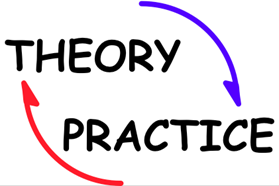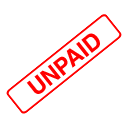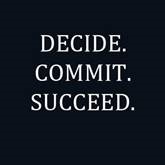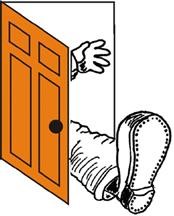 From the prospects perspective, most conversations with salespeople sound about the same. Salespeople all ask the same lame questions, they explain why they are the right choice, etc. That’s why prospects don’t look forward to sales calls. You can’t differentiate yourself doing the same things that the competition does. So have a different kind of conversation. Ask tough questions. Focus on them and the issue at hand. Take control of the conversation by what you ask and the topics you bring up rather than a terrific presentation. The prospect will sit up and take notice and see that you (and your product or service) are different.
From the prospects perspective, most conversations with salespeople sound about the same. Salespeople all ask the same lame questions, they explain why they are the right choice, etc. That’s why prospects don’t look forward to sales calls. You can’t differentiate yourself doing the same things that the competition does. So have a different kind of conversation. Ask tough questions. Focus on them and the issue at hand. Take control of the conversation by what you ask and the topics you bring up rather than a terrific presentation. The prospect will sit up and take notice and see that you (and your product or service) are different.
Have a conversation they never had before
Salespeople have rights too
 If you don’t believe you have a right to know, your questions will sound a beggar asking for food than a partner discussing topic. You are an equal partner in the sales call and in the vast majority of cases the prospect will be asking you to do something that requires effort ort expertise (like write a quote or send some information or describe your approach). Since they are not paying for the quote or the information they at least owe you the amount they are willing to spend if they like what they see. It is as simple as that. If you grasp that concept and believe it whole heartedly, your sales process will flow much more smoothly and you will not waste time with unqualified prospects.
If you don’t believe you have a right to know, your questions will sound a beggar asking for food than a partner discussing topic. You are an equal partner in the sales call and in the vast majority of cases the prospect will be asking you to do something that requires effort ort expertise (like write a quote or send some information or describe your approach). Since they are not paying for the quote or the information they at least owe you the amount they are willing to spend if they like what they see. It is as simple as that. If you grasp that concept and believe it whole heartedly, your sales process will flow much more smoothly and you will not waste time with unqualified prospects.
Practice your sales techniques
 Practice doesn’t make perfect. Perfect practice makes perfect. Most salespeople just go on sales calls and wing it. Doctors, lawyers and engineers refer to their entire professional career as a “practice”. College basketball teams practice 4 times a week and play games once or twice a week. So it’s obvious then that salespeople need more practice time. But what do you practice? You should practice using the sales techniques in non-selling situations. Practice them in role playing situations with a spouse or a colleague. It’s important to get the tonality right and it’s important to have the words down so you don’t have to think about them and it’s important so that you can react without thinking. So for stop reading this and go practice. Nothing less than your income depends on it.
Practice doesn’t make perfect. Perfect practice makes perfect. Most salespeople just go on sales calls and wing it. Doctors, lawyers and engineers refer to their entire professional career as a “practice”. College basketball teams practice 4 times a week and play games once or twice a week. So it’s obvious then that salespeople need more practice time. But what do you practice? You should practice using the sales techniques in non-selling situations. Practice them in role playing situations with a spouse or a colleague. It’s important to get the tonality right and it’s important to have the words down so you don’t have to think about them and it’s important so that you can react without thinking. So for stop reading this and go practice. Nothing less than your income depends on it.
Sell Consultatively
 Selling consultatively is GOOD. Being and unpaid consultant is BAD. That’s it in a nutshell but what is the difference? Consultative selling involves the following:
Selling consultatively is GOOD. Being and unpaid consultant is BAD. That’s it in a nutshell but what is the difference? Consultative selling involves the following:
- Having a conversation with the prospect
- Asking questions
- Understanding the prospect’s pain
- Determining if the prospect is ready to buy
- Acting as an equal in the conversation
- Displaying your knowledge by the questions you ask
Being and unpaid consultant looks like this:
- Being treated like a “vendor” which is a synonym for servant
- Getting minimal information from the prospect
- Telling the prospect everything you know
- Solving problems in the sales call
- Providing quotes to prospects without a commitment to make a decision
- Providing quotes to unqualified prospects
- Bidding and hoping to win
I could go on but you get the idea. Sell consultatively but don’t be and unpaid consultant. They sound similar but there is a world of difference between the two.
Asked but not answered! Does it happen to you?
 When you ask a question you deserve an answer or at least a reason why they can’t give you an answer. Too many salespeople ask questions and don’t get an answer or get one that is so convoluted as to be meaningless. If you want to be sure you get an answer, there are two things you must do. You must first believe that you deserve an answer to the question. For example if you ask how much money the prospect wants to spend and you do not believe you deserve an answer, your tonality will communicate that belief to the prospect and they won’t tell you. (Why you would believe you don’t deserve an answer is the subject of a whole other video). Next you must expect to get an answer. These may sound like the same thing, but there is a subtle and profound difference. If I expect to get an answer the prospect will “sense” that expectation and be more compelled to tell me something meaningful. It sounds simple because it is simple. Try it and see what happens.
When you ask a question you deserve an answer or at least a reason why they can’t give you an answer. Too many salespeople ask questions and don’t get an answer or get one that is so convoluted as to be meaningless. If you want to be sure you get an answer, there are two things you must do. You must first believe that you deserve an answer to the question. For example if you ask how much money the prospect wants to spend and you do not believe you deserve an answer, your tonality will communicate that belief to the prospect and they won’t tell you. (Why you would believe you don’t deserve an answer is the subject of a whole other video). Next you must expect to get an answer. These may sound like the same thing, but there is a subtle and profound difference. If I expect to get an answer the prospect will “sense” that expectation and be more compelled to tell me something meaningful. It sounds simple because it is simple. Try it and see what happens.
Use Your Knowledge
 Most salespeople know a lot and totally misuse the knowledge. They feel compelled to dispense what they know to the prospect in great detail and at the slightest provocation, thinking all the while that they are building credibility and demonstrating why the prospect should buy from them. Think about that for a while and then think how you react to salespeople who do that to you when you are the buyer. In reality, the best use of your knowledge is as a basis from which to ask questions. If you know the product and know the industry then you can ask more intelligent questions and glean more information than the novice who can only ask superficial questions. You will be able to recognize pain indicators when you hear them and follow up to get to the compelling reason to buy. Meanwhile, the novice misses the opportunity to follow up because they do not understand or appreciate the significance of what the prospect says. You know a lot and when you use that knowledge correctly then you have a much better chance of demonstrating your knowledge y the intelligent questions you ask.
Most salespeople know a lot and totally misuse the knowledge. They feel compelled to dispense what they know to the prospect in great detail and at the slightest provocation, thinking all the while that they are building credibility and demonstrating why the prospect should buy from them. Think about that for a while and then think how you react to salespeople who do that to you when you are the buyer. In reality, the best use of your knowledge is as a basis from which to ask questions. If you know the product and know the industry then you can ask more intelligent questions and glean more information than the novice who can only ask superficial questions. You will be able to recognize pain indicators when you hear them and follow up to get to the compelling reason to buy. Meanwhile, the novice misses the opportunity to follow up because they do not understand or appreciate the significance of what the prospect says. You know a lot and when you use that knowledge correctly then you have a much better chance of demonstrating your knowledge y the intelligent questions you ask.
Make A Commitment
 If you are not selling enough check your commitment. It is not the commitment to work hard that is most important. It is not even the commitment to working smart (whatever that means) that matters. What matters is your commitment to follow your sales process. You don’t just quote because the prospect asked you to if they are not yet qualified. You don’t make premature presentations. You ask the tough questions. You talk about money naturally. You do all of the things you know you have to do but sometimes avoid. If you are not committed to doing all of these things then you not expect the prospect to make commitments to buy from you. If you do your par the rest will take care of itself. By the way, if you don’t have a sales process that you follow religiously, then be committed to get one and follow it.
If you are not selling enough check your commitment. It is not the commitment to work hard that is most important. It is not even the commitment to working smart (whatever that means) that matters. What matters is your commitment to follow your sales process. You don’t just quote because the prospect asked you to if they are not yet qualified. You don’t make premature presentations. You ask the tough questions. You talk about money naturally. You do all of the things you know you have to do but sometimes avoid. If you are not committed to doing all of these things then you not expect the prospect to make commitments to buy from you. If you do your par the rest will take care of itself. By the way, if you don’t have a sales process that you follow religiously, then be committed to get one and follow it.
Look for Consequences
 To determine the prospect’s compelling reason to buy we need to understand more than what the problem is. We need to understand and get the prospect to verbalize what consequences the prospect will have (or is having) if the problem is not addressed. If the consequences are not severe, then you may be dealing with a situation where it would be nice to have the problem addressed but there is no compelling reason to fix it now. If there is no compelling reason to address the problem the sale will be derailed by even the slightest obstacle. Understanding what will happen if the problem is not addressed gets you one step closer to understanding the pain the prospect is in and whether there is urgency to eliminate it. Remember that it is extremely important to have the prospect verbalize the pain. It is not enough that you know that it must exist based on your experience.
To determine the prospect’s compelling reason to buy we need to understand more than what the problem is. We need to understand and get the prospect to verbalize what consequences the prospect will have (or is having) if the problem is not addressed. If the consequences are not severe, then you may be dealing with a situation where it would be nice to have the problem addressed but there is no compelling reason to fix it now. If there is no compelling reason to address the problem the sale will be derailed by even the slightest obstacle. Understanding what will happen if the problem is not addressed gets you one step closer to understanding the pain the prospect is in and whether there is urgency to eliminate it. Remember that it is extremely important to have the prospect verbalize the pain. It is not enough that you know that it must exist based on your experience.
Body Language
 Reading what a person means by their facial expression or the way they hold their body can be very dangerous. Reading body language can tell you things if you are expert at it. But it can lead to misinterpretations and confusion if you just have a passing acquaintance with how to interpret what you see. One thing you can and should do is notice when the body language shifts dramatically and ask a question about it. Don’t interpret anything, don’t assume, don’t guess, just ask. The video gives a couple of good examples at about the 1 minute mark.
Reading what a person means by their facial expression or the way they hold their body can be very dangerous. Reading body language can tell you things if you are expert at it. But it can lead to misinterpretations and confusion if you just have a passing acquaintance with how to interpret what you see. One thing you can and should do is notice when the body language shifts dramatically and ask a question about it. Don’t interpret anything, don’t assume, don’t guess, just ask. The video gives a couple of good examples at about the 1 minute mark.
Your foot is not enough…
 Get more than your foot in the door. If you try to break in to a new account by lowering your price, you will be stuck at a low and possibly unprofitable price point. And what is worse, you will be vulnerable to the next company that pulls the same strategy and beats your price. You will find it most difficult to change your image form the “low price people” to the “quality work” people. I am not against a small concession here and there when it is necessary to reduce the risk to the client for working with someone new. But, it should only be done when absolutely necessary and only with the understanding that once the prospect is comfortable normal terms and conditions will apply. Call at the right level, find a niche you can fill or a problem only you can solve and get your whole body in the door … not just your foot. You might check out the 17 questions that only top salespeople have the guts to ask I am offering over to the right of this article. They can help with differentiating you and getting your whole body in the door.
Get more than your foot in the door. If you try to break in to a new account by lowering your price, you will be stuck at a low and possibly unprofitable price point. And what is worse, you will be vulnerable to the next company that pulls the same strategy and beats your price. You will find it most difficult to change your image form the “low price people” to the “quality work” people. I am not against a small concession here and there when it is necessary to reduce the risk to the client for working with someone new. But, it should only be done when absolutely necessary and only with the understanding that once the prospect is comfortable normal terms and conditions will apply. Call at the right level, find a niche you can fill or a problem only you can solve and get your whole body in the door … not just your foot. You might check out the 17 questions that only top salespeople have the guts to ask I am offering over to the right of this article. They can help with differentiating you and getting your whole body in the door.

